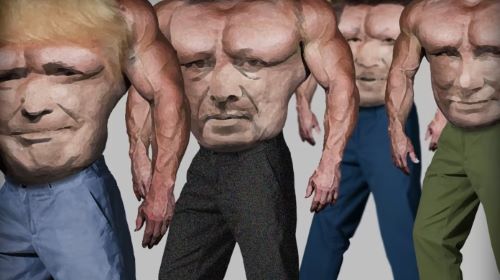

The rise of such personalized autocracy will lead to international instability.

By Gideon Rachman
Chief Foreign Affairs Commentator
Financial Times
From Moscow to Manila, Beijing to Budapest, Ankara to Delhi, the nationalist “strongman” leader is back in fashion. If the US elects Donald Trump next week, it would be following an international trend, not leading it.
The fascination with strongmen spans autocracies and democracies. China last week took a further dangerous step down the road to personalised autocracy when it announced that President Xi Jinping now represents the “core leadership” of the Communist party, a title with Maoist overtones. President Xi has just played host to Rodrigo Duterte, president of the Philippines, who came to power through an election but whose swaggering style and scant respect for the law is typical of the new breed of autocrats. The patron saint of the world’s strongman leaders is Vladimir Putin of Russia, whose personalised rule still retains some of the outward trappings of democracy.
The same mixture of democratic forms with autocratic reality is displayed by other strongman leaders, such as Recep Tayyip Erdogan, president of Turkey, and, to a lesser extent, Viktor Orban, prime minister of Hungary. And then there are the strongmen who still operate within genuinely democratic systems, such as Narendra Modi in India and Shinzo Abe in Japan, but whose political appeal is based around the idea of decisive leadership, with a distinct dash of nationalism.
Alarmingly, Mr Trump’s political style has most in common with some of the most autocratic strongmen, such as Presidents Putin and Erdogan.
The Russian and Turkish leaders portray the outside world as full of hostile forces, conspiring against their nations. They point to “enemies within”, often allegedly working with outside enemies. Mr Putin and Mr Erdogan, like Mr Xi, also promise to lead national revivals that will avenge previous humiliations at the hands of foreigners.
READ ENTIRE ARTICLE AT FINANCIAL TIMES


